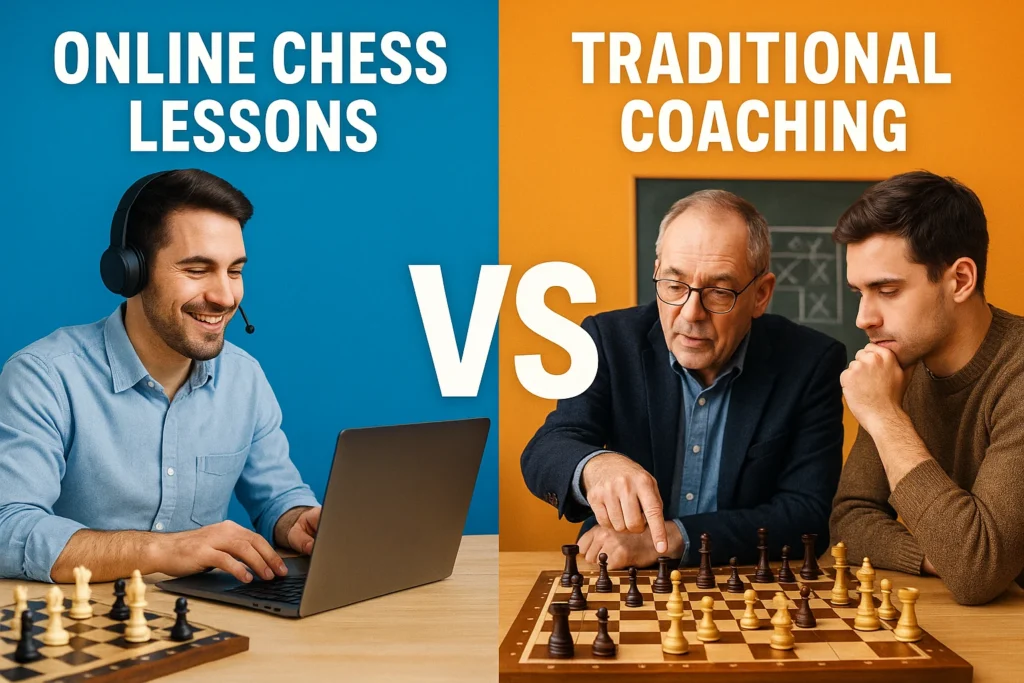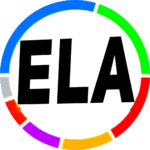
Chess is an ancient game, and the concept of a coach sitting beside you at the chessboard is almost as old. However, nearly every aspect of learning and skill development has changed in the past decade, and chess is no exception. For thousands of aspiring players around the world — children, adults, and professionals — online chess lessons have become the new normal.
So the question naturally appears: Are online chess lessons more effective than traditional coaching, and who benefits most from each format? This article reviews the strengths and weaknesses of both methods and explains why more students today choose online study, especially with a grandmaster chess coach.
How Traditional Chess Coaching Works
For decades, players studied chess in person — at schools, chess clubs, academies, or private lessons — sitting at a real chessboard. The coach sat across the board, demonstrated moves, corrected mistakes, and discussed positions face-to-face.
Many players enjoy traditional coaching because it feels personal, comfortable, and structured. The physical presence of a trainer is inspiring for children and helps them focus. Traditional lessons typically include:
- Reviewing student games on a real chessboard
- Practicing positions and solving tactical exercises
- Studying opening principles, strategy, and endgames
- Playing training games with the coach
- Homework and recommended study material
A personal chess coach can reinforce a routine, build study habits, and provide emotional support — all critical for progress.
How Online Chess Lessons Work
Today, many modern and grandmaster chess coaches fully shifted to online learning. Online coaching allows them to teach students worldwide, record lessons, and use digital training tools unavailable on a physical board.
Online chess lessons typically include:
- Shared interactive boards
- Real-time move suggestions
- Homework and practice databases
- PGN files and annotated game review
- Lesson recordings for later study
The biggest advantage is accessibility: you can train with the best chess coaches in the world regardless of your location. A student in the U.S. can study with a GM in Europe; a player in Asia can work with an international coach who prepares national champions. This global access didn’t exist before.
Advantages of Online Chess Lessons
1. Access to elite coaches
Local clubs often don’t have strong coaches, and very few offer lessons with a GM or IM. Online learning solves this problem completely.
2. Faster learning and clarity
Online coaching offers instant board setup, quick position switching, lesson recording, databases, and analysis tools, which leads to faster and more structured improvement.
3. Saves time and increases consistency
No commuting, fixed location, or time wasted between lessons. This format is ideal for adults with limited free time. Consistency is key to chess improvement — and online lessons make consistency easier.
4. Long-term progress tracking
Digital notes, PGNs, and recorded lessons help track progress and revisit concepts whenever necessary.
Advantages of Traditional Chess Coaching
1. Physical presence and motivation
Some students, especially younger children, focus better in person. Seeing a coach nearby can create a stronger sense of responsibility and motivation.
2. Best for very young beginners
If a child doesn’t know the rules or struggles to stay focused online, in-person lessons at the start can help.
3. Tournament-style training
Boards, clocks, and face-to-face play simulate real tournament conditions. Some advanced students take several in-person lessons before competitions.
4. Social environment
Chess clubs offer community, friendly games, and a social atmosphere that many students enjoy.
Limitations of Traditional Coaching
Traditional lessons also have drawbacks:
- No lesson recordings
- Time wasted setting positions
- Travel and scheduling difficulties
- Less structured homework
- Limited access to strong coaches
For busy adults, this often makes progress slower.
Which Format Works Best for Adults?
For most adults, online chess training is more effective. Adults often have limited free time and need a flexible system. Online lessons allow:
- Consistent study
- Access to strong trainers
- Homework and structured plans
- Efficient learning tools
With the right personal chess coach, adults improve quickly and confidently.
Which Format Works Best for Children?
Children who already know the basics can learn very effectively online — often faster, due to fewer distractions and modern tools.
For children under ~7 years old, in-person lessons may work better initially. But once they understand rules and can focus, online chess lessons are equally strong and often more productive.
So, Which Format Is Better Overall?
Both online and traditional chess coaching can work — the difference lies in structure, flexibility, and coach quality.
In today’s world, online chess lessons are generally more effective, especially with ambitious students and professional instructors like a grandmaster chess coach. Traditional lessons are still valuable for young beginners and players who love the social aspect of clubs.
But overall, most improvement today happens online — faster and more efficiently.
Study With a Grandmaster
Online coaching with a grandmaster gives you a structured program, deep understanding, and personalized guidance.
You can learn more about training formats here:
https://chess-grandmaster.com/
FAQ
Are online chess lessons effective?
Yes — for most students, online coaching is more flexible, efficient, and offers access to stronger trainers.
Do beginners benefit from online chess lessons?
Absolutely. With proper guidance, beginners progress quickly online.
Do you need a GM chess coach to improve?
Not always — but a grandmaster prevents bad habits and accelerates learning dramatically.
Can adults get strong at chess online?
Yes. Adults often improve very quickly with structured training and a clear study plan.
Is online coaching good for tournament preparation?
Yes — many professionals train online using databases, game review, and practice games.
How often should I study with a coach?
1–2 lessons per week plus regular self-study is an ideal training rhythm.
